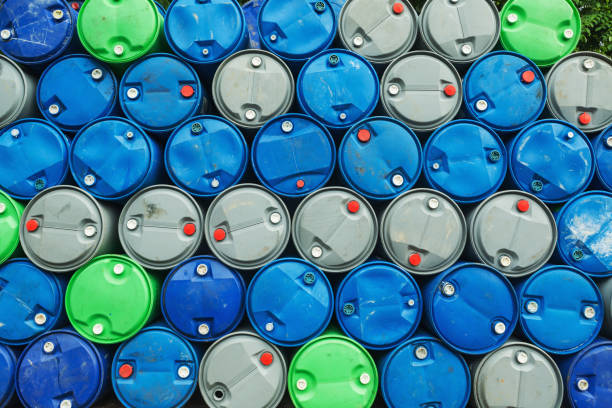Turning Waste into Wealth: The Power of Waste Oil Recycling*
Turning Waste into Wealth: The Power of Waste Oil Recycling*
In a world striving for sustainability, waste oil recycling stands out as a beacon of environmental responsibility and economic opportunity. In this blog, we'll explore the importance of recycling waste oil, uncover the benefits of this process, and highlight innovative solutions that are reshaping the way we manage our resources.
*The Challenge of Waste Oil*
Used cooking oil, motor oil, and industrial lubricants are among the most common types of waste oil generated worldwide. Improper disposal of waste oil poses serious environmental risks, including soil and water contamination, air pollution, and harm to aquatic ecosystems. Moreover, waste oil disposal often involves significant costs and logistical challenges for businesses and municipalities.
*The Promise of Recycling*
Waste oil recycling offers a sustainable alternative to traditional disposal methods, unlocking valuable resources and reducing environmental impact. Through recycling, used oil can be transformed into a range of products, including biodiesel, lubricants, asphalt additives, and even renewable energy. By diverting waste oil from landfills and incinerators, recycling helps conserve natural resources, reduce greenhouse gas emissions, and promote circular economy principles.
*Benefits of Waste Oil Recycling*
The benefits of waste oil recycling are manifold. From environmental protection and energy conservation to economic growth and job creation, recycling waste oil delivers tangible and far-reaching advantages. By repurposing waste oil into valuable products, recycling facilities contribute to local economies, support sustainable industries, and foster innovation in resource management.
*Innovative Recycling Technologies*
Advancements in recycling technologies are driving the evolution of waste oil recycling, making the process more efficient, cost-effective, and environmentally friendly. From solvent extraction and centrifugation to distillation and chemical conversion processes, innovative techniques are enabling the recovery of high-quality base oils and additives from used oil streams. Additionally, decentralized recycling systems, mobile treatment units, and on-site processing solutions are expanding access to waste oil recycling services, particularly in remote or underserved areas.
*Regulatory Framework and Industry Standards*
Government regulations and industry standards play a crucial role in ensuring the safe and responsible management of waste oil. Regulatory frameworks, such as the Resource Conservation and Recovery Act (RCRA) in the United States and the Waste Framework Directive in the European Union, establish requirements for waste oil handling, storage, transportation, and recycling. Compliance with these regulations helps protect human health and the environment while promoting best practices in waste management.
*Collaborative Partnerships and Stakeholder Engagement*
Successful waste oil recycling requires collaboration among stakeholders across the supply chain, including oil producers, recyclers, regulators, and consumers. Collaborative partnerships can facilitate knowledge sharing, technology transfer, and capacity building, driving continuous improvement in recycling practices and fostering a culture of environmental stewardship. Public awareness campaigns, educational initiatives, and incentives for waste oil recycling can also engage individuals and businesses in supporting sustainable solutions.
*A Call to Action*
As stewards of the planet, we have a responsibility to maximize the value of our resources and minimize waste. Waste oil recycling offers a compelling opportunity to turn a liability into an asset, promoting environmental sustainability, economic prosperity, and social well-being. By embracing recycling and investing in innovative solutions, we can create a more resilient and regenerative future for generations to come.
Join the movement for waste oil recycling by supporting local recycling programs, advocating for policy reforms, and choosing environmentally responsible products and services. Together, let's harness the power of recycling to build a greener, cleaner, and more prosperous world.

